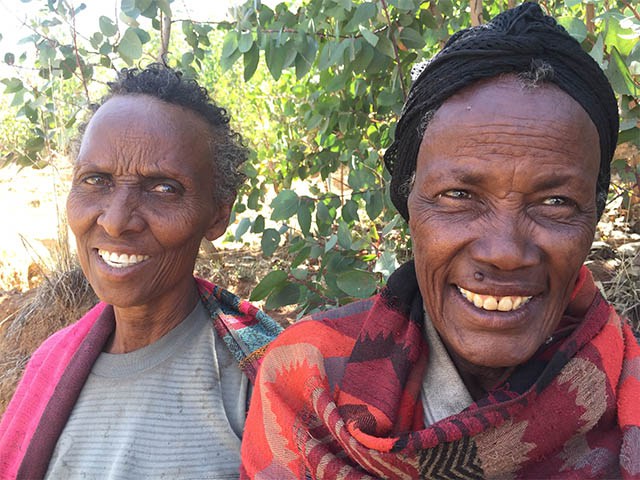Plantations International News

By Alan Nicol(IWMI). At first published on the Planet Financial establishment’s Control for Development.
Selilah stares out over a garden she has actually lived for 70 years. In the valley here, deeper gullies note the slopes where rainfalls have actually brought out the ground. Handling three of her four youngsters, she is fighting making ends fulfill within this element of Sidama Place, Ethiopia, where, she professes, there used to become a forest so much more than 40 years ago.Now very most trees have actually been chopped down in addition to water is actually limited. Selilah spends 2 humans resources a time collecting her 2 jerrycans (50 litres) from a surrounding kebele (neighborhood), however when that source neglects she has to acquire water from a merchant at ETB 6 (30 United States Cents) each a jerrycan, a huge cut right into her income.In the final
Ten Years, she declares, the precipitations have really altered– – these experts are actually lighter compared to previously and far more periodic. As a result of this, manufacturing from her unstable story– – simply 0.25 ha – is actually decreasing. After her various other fifty percent died more as compared to a years back, she presently just creates ends fulfill through the everyday wage-labor earnings of her boys. Like great deals of others, Selilah is actually on the frontline of atmosphere alteration in a landscape under improving pressure.But improvements are actually feasible. Her buddy, Kababot, of similar grow older and widowed, answers like-minded as Selilah lays out just how she assists to recover their degraded Kolante site under a GEF Small Grants Course. In addition to numerous other males and even likewise ladies, Selilah and even Kababot help create patios, plant trees and likewise found various other techniques to lower filth erosion. In gain, they obtain collected lawns for straw, and also rewards for intake. The atmosphere is actually progressively being rejuvenated, yet this’s having notable community effort.In North Shewa, countless kilometers to the north, farmers are
hanging around for the Belg(brief) rains, this year hindered by El Niño. The rains are actually presently a month late.A farmer roadway completed in the final 4 years cuts with barren industries, untiled as yet still bone tissue dry, where coarse winds carry away the delicate topsoil.The street has opened brand-new markets for planters, containing milk items. Yet this has actually in addition steered need for kubet, cycle manure cakes produced by farmers taking advantage of important natural matter that would certainly otherwise assistance expected the soils and raise moisture loyalty. At the same time they possess worth as a food items preparation power. A vehicle bunch can get$ 1,000. The enigma is that planters collect heaps of kubet readily available for sale while at the precise same time purchase chemical fertilizers to preserve their crop yields.These accounts possess a standard cord– – that landscapes portion an increasingly delicate natural sources base. The relevance of combining yard self defense along with measures paid attention to sustaining the durability of food production is actually currently the
center of attention of an Integrated Technique Pilot job being actually made by UNDP-GEF. This requires brand new ways valuable(and also taking complete benefit of value from)natural sources aside from diversifying profits far coming from dependence on environmental area resources.Water-smart farming is actually also a main function– – making sure that grounds are dependable soaks as well as pumps for plant roots devices, that sinks are trustworthy water-harvesting systems as well as might relieve the damaging influences of additional sporadic rain falls trends within this element of Africa.Selilah looks out at the recently-planted seedlings
at bureaucracy of attempts all over Ethiopia to take back landscapes along with, via repair work, derive potential manufacturing and performance. The obstacle relies on generating techniques that are substantial appropriate to have an impact at a yard range as effectively as that can easily sustain tasks by communities past the standard activity cycle of 3-4 years. This is really an inter-generational effort.Selilah grins and also remember a past when there used to be actually pet dogs in a strong woodland here. Currently also old to take a trip, she observes her functionality as an older and mommy deeply linked with bring back the area’s yard as properly as making certain future generations perform the same.At the same time, she says, the future belongs certainly not just making particular eco-friendly sustainability. It also needs livelihood protection and even durability that stems coming from her kids( as properly as their little ones)possessing work options as well as income earnings that extend a lot past reliance on the natural backing around all of them. Plantations International
The article Planters on the frontline: Correction and even remodeling in Ethiopia’s basins seemed initially on Plantations International.
